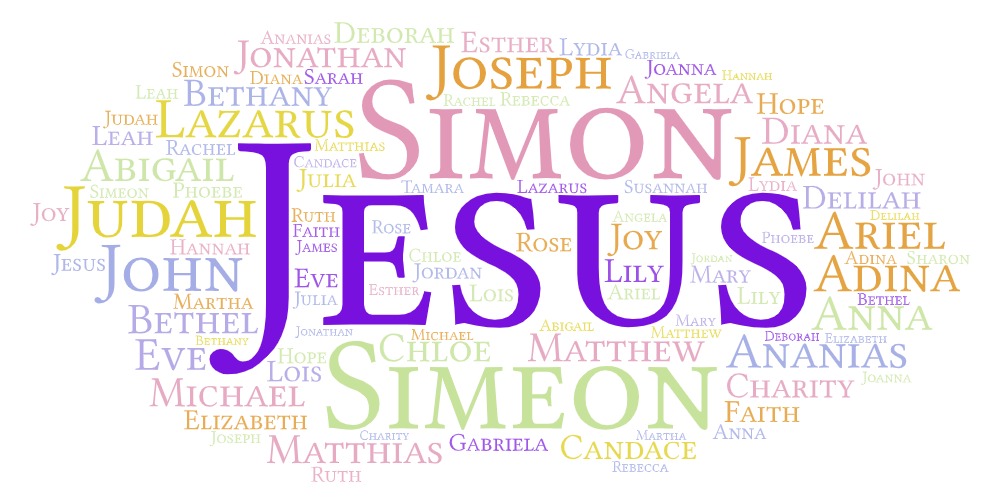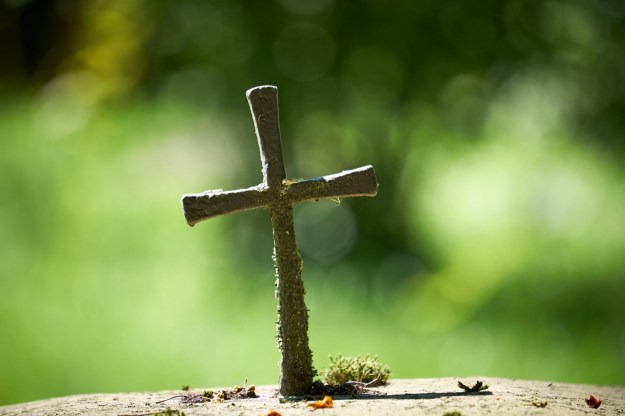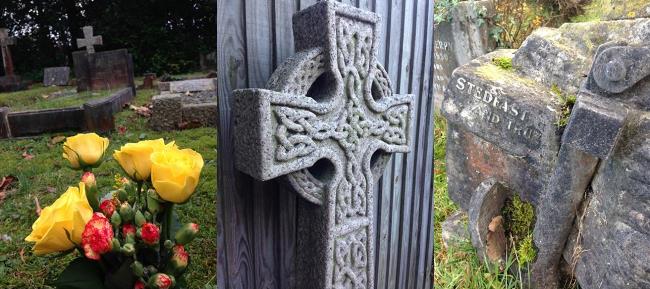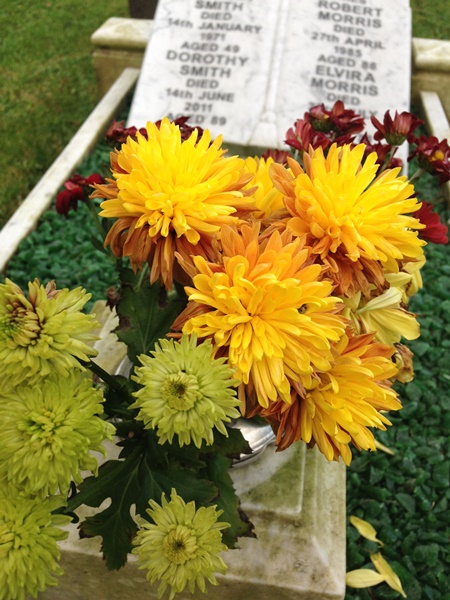
Sermon preached at St Peter’s, Boyatt Wood on New Year’s Day 2023 based on readings Luke 2:15-21 and Psalm 8
May I speak and may you hear through the Grace of our Lord; Father, Son and Holy Spirit. Amen
Names are important to us, at least I’m very attached to mine. It allows me to be identified through my passport and bank account. It put me in my place on the school register and other lists, and it gives me a place within my family history… It’s also useful for people to grab my attention.
As parents we might have agonised for months what our unborn child should be called. Maybe we had a family name in mind, or we read baby name books to try and find something a little unusual and more unique, or perhaps we checked what the initials might spell, after all would it be easy to go through life as Graham Oliver Downes?
If you had been born a boy in Tudor times you would probably have received one of only seven names, John, Thomas, William, Robert, Richard, Henry or Edward, and been the same as every other Tom, Dick or Harry.
However, our parents today did not have any of these problems, because the name of their son had already been decided for them. He was to be called Jesus. His name had been decided before Mary had even known she would become pregnant and was told to her by the angel Gabriel, ‘And now, you will conceive in your womb and bear a son, and you will name him Jesus’ (Luke 1:31).
Joseph, too, was informed in a dream, ‘do not be afraid to take Mary as your wife, for the child conceived in her is from the Holy Spirit. She will bear a son, and you are to name him Jesus, for he will save his people from their sins’ (Matthew 1:20-21). And he did just that, from Matthew’s gospel we hear that, ‘he took her as his wife, but had no marital relations with her until she had borne a son; and he named him Jesus’ (Matthew 1:25).
It is only in Luke though that we hear that Jesus undergoes the Jewish ritual of circumcision, at 8 days old, and receives the name ‘given by the angel’.
Actually, the name Jesus was quite popular in first-century Judea. For this reason, we often hear him being distinguished by his childhood home, when he is ‘Jesus of Nazareth.’ His neighbours would have simply known him as the son of Joseph the carpenter, but his name was important for other reasons.
The name Jesus, announced to Joseph and Mary through the angels, means ‘God (or Yahweh in Hebrew) saves’ or ‘Yahweh is salvation.’ Transliterated his name is Yeshua, a combination of Ya, an abbreviation for Yahweh, and the verb yasha, meaning to rescue, deliver or save. Now we can see it’s significance when applied to the person of God who has become our Saviour.
Jesus was sent by God for that particular purpose, to save us, and his personal name bears witness to that mission. In Acts we hear Peter, emboldened by the Holy Spirit declare, ‘There is salvation in no one else, for there is no other name under heaven given among mortals by which we must be saved’ (Acts 4:12). Mortals, whom we hear in this morning’s Psalm, God is mindful of, having ‘made them a little lower than’ himself. Yet who will be saved?
The call of salvation goes out into all the world, and all who come to God through Christ become part of the people of God. They are to be saved from their sins through the power of the Holy Spirit, and when I say ‘they’, I include all of us here today. This is truly the good news of Christmas. The baby born on Christmas Eve is the Son of God who came to save his people from their sins.
If ever a name was packed with significance, it is the name Jesus. It is the name that establishes the tone for everything we should do, ‘in word or deed’ as Christians. We are called to proclaim that salvation is in the name of Jesus alone, that we receive forgiveness through his name and that at our baptism we will receive the gift of the Holy Spirit. Healing and miracles were performed in the name of Jesus, and he teaches us to pray in his name, so that as John’s gospel tells us, ‘I will do whatever you ask in my name, so that the Father may be glorified in the Son. You may ask me for anything in my name, and I will do it’ (John 14:13-14).
In every way, Jesus lives up to His name. His name reminds us of the power, presence, and purpose of the risen Christ. It assures us that God’s gracious intention is to save us. Our Lord Jesus brought God to humanity and now brings humans to God through the salvation he purchased.
But what of our names? It is easy to overlook the extraordinary nature of Luke’s statement that Jesus’ name was told to Mary pre-conception, implying God’s pre-knowledge of Jesus and the role he would assume. Of course, we can read the Old Testament prophecies about a Saviour, and accept that, as one of the Persons of the Trinity, Jesus would have been ‘known’ before he began his life as one of us.
The fact is that we too have always been known and ‘named’ before we were conceived. If we read verses from Psalm 139, about an all-knowing God, For it was you who formed my inward parts; you knit me together in my mother’s womb… My frame was not hidden from you, when I was being made in secret, intricately woven in the depths of the earth. Your eyes beheld my unformed substance.
God knows all of us by name. We are not just numbers. We are persons with names and each of us have a different life story. There are millions of us, yet God knows each of us personally. We should never forget that. God does not treat us impersonally either. He knows our history. He knows our struggles. He knows our personalities. He knows us inside out. Yet he loves us without hesitation. We don’t need to fake anything in order to be good enough for God. We can come as we are and know that God receives us with great joy. God knows us by name.
I can think of no better way to start a New Year than with a fresh realization that we are wholly and deeply known to a loving God, and that, whatever our individual ‘name’ may be, our own unique and distinctive calling which we are continually discovering, if we are Christians, is to walk under the banner of the name of Jesus Christ.
O Lord, our Sovereign,
how majestic is your name in all the earth!
Amen




















